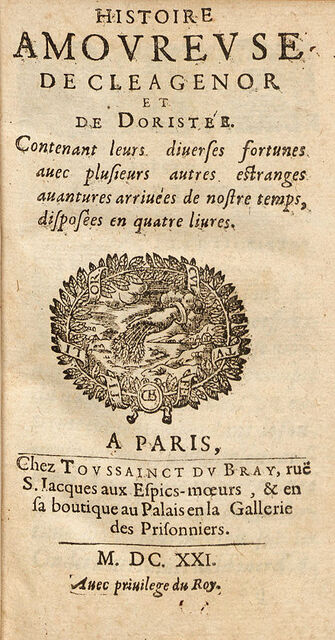|
For the most part, I read these plays with a critical, objective eye, but occasionally some of the writing and logic inherent in these classical plays is absolutely absurd. In Cleagenor et Doristee, the two lovers are being chased by a rival when they are separated and Doristee is abducted by thieves disguised as a man. She ends up in the house of Theandre as a servant, where everyone proceeds to fall in love with her. The wife and her servant fall in love with the disguise, and Theandre falls in love when he overhears Doristee lamenting her position. The married couple proceeds to be angry with the other for the same sin that both have committed, when Doristee hears that Cleagenor is dead. Like in any other play from this period, if a messanger comes to tell of the death, you can be sure that the character is not actually dead. Sure enough, when Cleagenor turns up at the house of Theandre, he tells him that Doristee was murdered by thieves, right before Doristee herself enters the room. Theandre then says "J'ai voulu par la peine augmenter votre joie" which I find to be the most absurd part of this play. The suspension of disbelief can only take so much, and I simply cannot understand these characters who behave in a way that is completely illogical to me and does not serve the plot in any true way.
0 Comments
Leave a Reply. |
Jennifer KellettM.A. French Literature Florida State University Archives
June 2021
Categories |
Photos used under Creative Commons from mharrsch, Renaud Camus

 RSS Feed
RSS Feed
